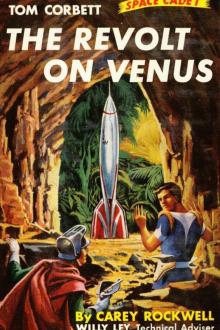Hypatia — or New Foes with an Old Face by Charles Kingsley (e book reader TXT) 📗

- Author: Charles Kingsley
Book online «Hypatia — or New Foes with an Old Face by Charles Kingsley (e book reader TXT) 📗». Author Charles Kingsley
Her countenance was haggard and bony, with broad sharp-cut lips, stamped with a strangely mingled expression of strength and sensuality. Put the feature about her which instantly fixed Hypatia’s attention, and from which she could not in spite of herself withdraw it, was the dry, glittering, coal-black eye which glared out from underneath the gray fringe of her swarthy brows, between black locks covered with gold coins. Hypatia could look at nothing but those eyes; and she reddened, and grew all but unphilosophically angry, as she saw that the old woman intended her to look at them, and feel the strange power which she evidently wished them to exercise.
After a moment’s silence, Miriam drew a letter from her bosom, and with a second low obeisance presented it.
‘From whom is this?’
‘Perhaps the letter itself will tell the beautiful lady, the fortunate lady, the discerning lady,’ answered she, in a fawning, wheedling tone. ‘How should a poor old Jewess know great folks’ secrets?’
‘Great folks?—’
Hypatia looked at the seal which fixed a silk cord round the letter. It was Orestes’; and so was the handwriting.... Strange that he should have chosen such a messenger! What message could it be which required such secrecy?
She clapped her hands for the maid. ‘Let this woman wait in the ante-room.’ Miriam glided out backwards, bowing as she went. As Hypatia looked up over the letter to see whether she was alone, she caught a last glance of that eye still fixed upon her, and an expression in Miriam’s face which made her, she knew not why, shudder and turn chill.
‘Foolish that I am! What can that witch be to me? But now for the letter.’
‘To the most noble and most beautiful, the mistress of philosophy, beloved of Athene, her pupil and slave sends greeting.’....
‘My slave! and no name mentioned!’
‘There are those who consider that the favourite hen of Honorius, which bears the name of the Imperial City, would thrive better under a new feeder; and the Count of Africa has been despatched by himself and by the immortal gods to superintend for the present the poultry-yard of the Caesars—at least during the absence of Adolf and Placidia. There are those also who consider that in his absence the Numidian lion might be prevailed on to become the yoke-fellow of the Egyptian crocodile; and a farm which, ploughed by such a pair, should extend from the upper cataract to the Pillars of Hercules, might have charms even for a philosopher. But while the ploughman is without a nymph, Arcadia is imperfect. What were Dionusos without his Ariadne, Ares without Aphrodite, Zeus without Hera? Even Artemis has her Endymion; Athens alone remains unwedded; but only because Hephaestus was too rough a wooer. Such is not he who now offers to the representative of Athene the opportunity of sharing that which may be with the help of her wisdom, which without her is impossible. [Greek expression omitted] Shall Eros, invincible for ages, be balked at last of the noblest game against which he ever drew his bow?’....
If Hypatia’s colour had faded a moment before under the withering glance of the old Jewess, it rose again swiftly enough, as she read line after line of this strange epistle; till at last, crushing it together in her hand, she rose and hurried into the adjoining library, where Theon sat over his books.
‘Father, do you know anything of this? Look what Orestes has dared to send me by the hands of some base Jewish witch!’—And she spread the letter before him, and stood impatient, her whole figure dilated with pride and anger, as the old man read it slowly and carefully, and then looked up, apparently not ill pleased with the contents.
‘What, father?’ asked she, half reproachfully. ‘Do not you, too, feel the insult which has been put upon your daughter?’
‘My dear child,’ with a puzzled look, ‘do you not see that he offers you—’
‘I know what he offers me, father. The Empire of Africa.... I am to descend from the mountain heights of science, from the contemplation of the unchangeable and ineffable glories, into the foul fields and farmyards of earthly practical life, and become a drudge among political chicanery, and the petty ambitions, and sins, and falsehoods of the earthly herd.... And the price which he offers me—me, the stainless—me, the virgin—me, the un-tamed,—is-his hand! Pallas Athene! dost thou not blush with thy child?’
‘But, my child—my child,—an empire—’
‘Would the empire of the world restore my lost self-respect-my just pride? Would it save my cheek from blushes every time I recollected that I bore the hateful and degrading name of wife?—The property, the puppet of a man—submitting to his pleasure—bearing his children—wearing myself out with all the nauseous cares of wifehood—no longer able to glory in myself, pure and self-sustained, but forced by day and night to recollect that my very beauty is no longer the sacrament of Athene’s love for me, but the plaything of a man;—and such a man as that! Luxurious, frivolous, heartless—courting my society, as he has done for years, only to pick up and turn to his own base earthly uses the scraps which fall from the festal table of the gods! I have encouraged him too much—vain fool that I have been! No, I wrong myself! It was only—I thought—I thought that by his being seen at our doors, the cause of the immortal gods would gain honour and strength in the eyes of the multitude.... I have tried to feed the altars of heaven with earthly fuel.... And this is my just reward! I will write to him this moment,—return by the fitting messenger which he has sent, insult for insult!’
‘In the name of Heaven, my daughter!—for your father’s sake!—for my sake! Hypatia!—my pride, my joy, my only hope!—have pity on my gray hairs!’
And the poor old man flung himself at her feet, and clasped her knees imploringly.
Tenderly she lifted him up, and wound her long arms round him, and laid his head on her white shoulder, and her tears fell fast upon his gray hair; but her lip was firm and determined.
‘Think of my pride—my glory in your glory; think of me.... Not for myself! You know I never cared for myself!’ sobbed out the old man. ‘But to die seeing you empress!’
‘Unless I died first in childbed, father, as many a woman dies who is weak enough to become a slave, and submit to tortures only fit for slaves.’
‘But—but—said the old man, racking his bewildered brains for some argument far enough removed from nature and common sense to have an effect on the beautiful fanatic—‘but the cause of the gods! What you might do for it!.... Remember Julian!’
Hypatia’s arms dropped suddenly. Yes; it was true! The thought flashed across her mind with mingled delight and terror.... Visions of her childhood rose swift and thick—temples—sacrifices—priesthoods— colleges—museums! What might she not do? What might she not make Africa? Give her ten years of power, and the hated name of Christian might be forgotten, and Athene Polias, colossal in ivory





Comments (0)